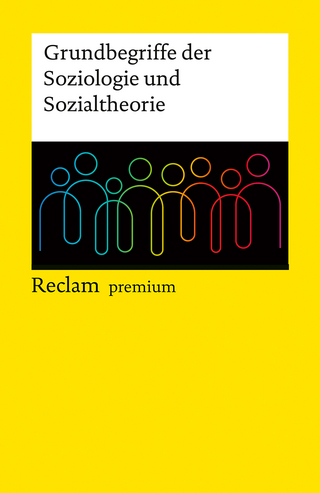
100 Questions (and Answers) About Research Ethics
SAGE Publications Inc (Verlag)
978-1-5063-4870-4 (ISBN)
100 Questions (and Answers) About Research Ethics is an essential guide for graduate students and researchers in the social and behavioral sciences. It identifies ethical issues that individuals must consider when planning research studies as well as provides guidance on how to address ethical issues that might arise during research implementation. Questions such as assessing risks, to protecting privacy and vulnerable populations, obtaining informed consent, using technology including social media, negotiating the IRB process, and handling data ethically are covered.
Acting as a resource for students developing their thesis and dissertation proposals and for junior faculty designing research, this book reflects the latest U.S. federal research regulations to take effect mostly in January 2018.
Preface
Acknowledgments
About the Authors
PART 1: UNDERSTANDING ETHICS IN RESEARCH WITH HUMAN PARTICIPANTS
1. What Is Ethics, and How Does It Apply to Research With Human Participants?
2. What Is the Ethical Justification for Conducting Research With Human Participants?
3. What Broad Ethical Principles Apply to Research With Human Participants?
4. What Ethical Guidance and Regulations Inform Research With Human Participants, and What, If Anything, Has Changed Over Time?
5. What Is the Relationship Between Ethics and Compliance?
6. What Are the Potential Consequences of Ignoring Ethical Principles and Regulations?
7. What Kinds of Research Are Considered Unethical, and What Are Some Examples of Serious Ethical Lapses in Social and Behavioral Sciences Research?
8. How Do Standard Ethical Practices for Research Vary Among Academic Disciplines in the Social and Behavioral Sciences?
9. Who Is Responsible for Ensuring Research Is Conducted Ethically?
10. When I Begin Developing My Research, What Ethical Issues Should I First Consider?
PART 2: ASSESSING RESEARCH RISKS AND BENEFITS
11. What Is Risk, and What Are the Risks in Social and Behavioral Sciences Research?
12. How Do I Identify Risks in My Research—and Minimize Them?
13. What Is Meant by “Minimal Risk”?
14. What Are the Potential Benefits of Research?
15. How Do I Design My Research So That the Risk-Benefit Balance Is Favorable?
16. How Do I Make Sure That Participants in My Research Do Not Overestimate the Benefits or Underestimate the Risks?
17. I Will Conduct Research on a Sensitive Topic. What Should I Do to Prevent Psychological Harms?
PART 3: PROTECTING PRIVACY AND CONFIDENTIALITY
18. What Is Meant by “Privacy” and “Confidentiality,” and Is There a Difference?
19. What Makes Data De-Identified?
20. What Makes Data Anonymous?
21. When Is Information (or Behavior) Considered Private Rather Than Public, and How Can Private Information Be Used in Research?
22. What Can I Do to Protect Participants’ Privacy During Data Collection and Reporting?
23. What Can I Do to Protect the Confidentiality of Information Collected?
24. When Must I Share Study Data—and Participant Names—With Individuals Outside of the Research Team?
25. What Is a Certificate of Confidentiality?
26. What Privacy Laws Must I Follow?
PART 4: PROTECTING VULNERABLE POPULATIONS
27. What Kinds of Participants Are Considered Vulnerable in Research, and What Are Some Ways to Protect Vulnerable Participants?
28. What Ethical Issues Should I Consider When Conducting Research With Prisoners?
29. What Ethical Issues Should I Consider When Conducting Research With Pregnant Women?
30. What Ethical Issues Should I Consider When Conducting Research With Children?
31. What Ethical Issues Should I Consider When Conducting Research With Individuals Who Have Experienced Traumatic Events?
32. What Ethical Issues Should I Consider When Conducting Research With Adults Who May Lack Decision-Making Capacity Due to Cognitive Impairment?
33. What Ethical Issues Should I Consider When Conducting Research With Students, Particularly Students Whom I Teach?
PART 5: OBTAINING INFORMED CONSENT
34. What Is Informed Consent?
35. What Is the Informed Consent Process?
36. What Is an Informed Consent Form?
37. When Is Informed Consent Required?
38. What Is the Difference Between Written and Verbal Informed Consent, and When Can Verbal Informed Consent Be Used?
39. What Are the Requirements for Informing Participants in Research That Is Determined to Be Exempt From the Federal Regulations?
40. What Type of Information Must Be Included in an Informed Consent Form?
41. How Do I Write a Consent Form That Is Easy to Understand?
42. How Do I Obtain Informed Consent?
43. Who Can Consent to Research Participation?
44. What Do I Do With the Consent Form After It Is Signed by a Participant?
45. How Do I Obtain Informed Consent From a Prospective Participant Who Cannot Read the Consent Form?
46. How Do I Obtain Informed Consent From Prospective Participants Who Speak a Different Language From Mine?
47. How Can I Obtain Informed Consent From Individuals With Cognitive Impairments or Developmental Disabilities?
48. How Do I Know If a Prospective Participant Understands the Research?
49. How Do I Ensure That a Participant’s Consent Is Voluntary?
50. Do I Need to Obtain Informed Consent Before Asking Screening Questions?
51. Do I Need to Obtain Informed Consent From Individuals to Use Their Existing Data That Were Collected for Other Purposes?
52. How Are Parents Involved in Decision Making About Their Children’s Participation in Research?
53. What Type of Agreement Do I Need From Children So They Can Participate in Research?
54. How Should I Obtain Informed Consent From Prospective Participants When I’m Conducting Research Outside the United States?
PART 6: DESIGNING ETHICAL RESEARCH
55. How Do I Ensure That Eligibility Criteria Are Appropriate and Fair?
56. What Strategies Can I Use to Ethically Recruit People to Join My Research?
57. When Is It Appropriate to Pay Participants for Taking Part in Research?
58. How Do I Determine the Appropriate Amount to Pay Research Participants?
59. What Ethical Issues Should I Consider When Conducting Focus Group Discussions?
60. What Ethical Issues Should I Consider When Conducting Participant Observations?
61. What Are Some of the Ethical Issues Raised by Deception in Research, and When Is It Ethically Acceptable to Use Deception?
62. What Ethical Issues Should I Consider If My Intervention Research Includes a Control Group?
63. What Ethical Issues Should I Consider When Conducting Research in a Defined Community?
64. What Is the Relationship Between Community Engagement and Research Ethics?
65. What Does Cultural Competence Mean, and How Do I Apply It to Research Ethics?
66. What Ethical Guidelines and Regulations Should I Consider When Conducting Research in Another Country?
PART 7: ADDRESSING ETHICAL ISSUES IN ONLINE RESEARCH
67. Are There Specific Ethical Guidelines for Conducting Research Online?
68. What Ethical Issues Should I Consider When Recruiting Study Participants Online?
69. What Ethical Issues Should I Consider When Collecting New Data Online?
70. What Ethical Issues Should I Consider When Using Data That Already Exist Online?
71. How Do I Document Informed Consent When Conducting Research Online—and Ensure That Participants Understand the Research?
72. Is It Ethical for Me to Join an Online Discussion Group or Chat Room for Research Purposes Without Informing the Group That I’m a Researcher?
73. How Do I Verify the Age of Individuals Who Participate in My Online Research?
PART 8: NEGOTIATING THE IRB REVIEW PROCESS
74. What Is an IRB, and Who Are the Members?
75. How Do I Know If My Study Must Be Reviewed by an IRB?
76. How Do I Know Which IRB—and How Many IRBs—Must Review and Approve My Proposed Research?
77. When Is a Research Study “Exempt” From the Federal Research Regulations, and What Does This Mean?
78. What Is Expedited Review?
79. What Is the Difference Between Expedited and Full Board Review?
80. What Materials Will I Need to Submit to the IRB?
81. What Can I Expect During the IRB Review Process?
82. Before IRB Approval, What Can I Do and Not Do?
83. What Are Changes That the IRB Can Request, and How Do I Respond?
84. What Should I Do If I Want to Change the Protocol, Consent Form, or Other Documents After They Have Been Approved by an IRB?
85. What Should I Do If My Research Requires Continuing Review?
86. I Am Collecting Data for a Class Project. Do I Need IRB Approval?
87. I Am Conducting an Evaluation of a Program. Do I Need IRB Approval?
PART 9: UNDERSTANDING ETHICAL RESPONSIBILITIES OF DATA USE
88. What Confidentiality Procedures Should I Put in Place After All Data Have Been Collected?
89. How Long Must I Keep My Research Records?
90. When Can I Destroy My Research Files?
91. Do I Have an Ethical Obligation to Publish My Research Findings?
92. Can I Publish My Findings If I Did Not Get IRB Approval or Obtain Informed Consent From Participants?
93. What Do I Need to Do to Ensure That I Protect Participants’ Identities When Sharing Datasets With Others and That Participants Are Informed of This Possibility?
94. Can I Show Participants Their Transcripts or the Transcripts of Other Participants?
95. Should I Share the Results of My Research With Study Participants?
PART 10: HANDLING ETHICAL ISSUES THAT ARISE DURING RESEARCH IMPLEMENTATION
96. What Should I Do If I—or a Study Staff Member or Participant—Do Something That Was Not in the Approved Protocol?
97. What Should I Do If Someone Is Physically, Emotionally, or Socially Harmed From Taking Part in My Research?
98. What Should I Do If a Participant Says He Wants to Harm Himself or Someone Else?
99. What Should I Do If I Lose My Field Notes or Other Hard Copies of Data?
100. What Should I Do If a Participant Says a Person’s Name or the Name of an Organization During an Interview or Focus Group Discussion?
References and Resources
Index
| Erscheinungsdatum | 16.03.2018 |
|---|---|
| Reihe/Serie | SAGE 100 Questions and Answers |
| Verlagsort | Thousand Oaks |
| Sprache | englisch |
| Maße | 152 x 228 mm |
| Gewicht | 330 g |
| Themenwelt | Medizin / Pharmazie |
| Sozialwissenschaften ► Pädagogik | |
| Sozialwissenschaften ► Soziologie ► Allgemeines / Lexika | |
| Sozialwissenschaften ► Soziologie ► Empirische Sozialforschung | |
| Wirtschaft ► Betriebswirtschaft / Management ► Unternehmensführung / Management | |
| ISBN-10 | 1-5063-4870-X / 150634870X |
| ISBN-13 | 978-1-5063-4870-4 / 9781506348704 |
| Zustand | Neuware |
| Informationen gemäß Produktsicherheitsverordnung (GPSR) | |
| Haben Sie eine Frage zum Produkt? |
aus dem Bereich


